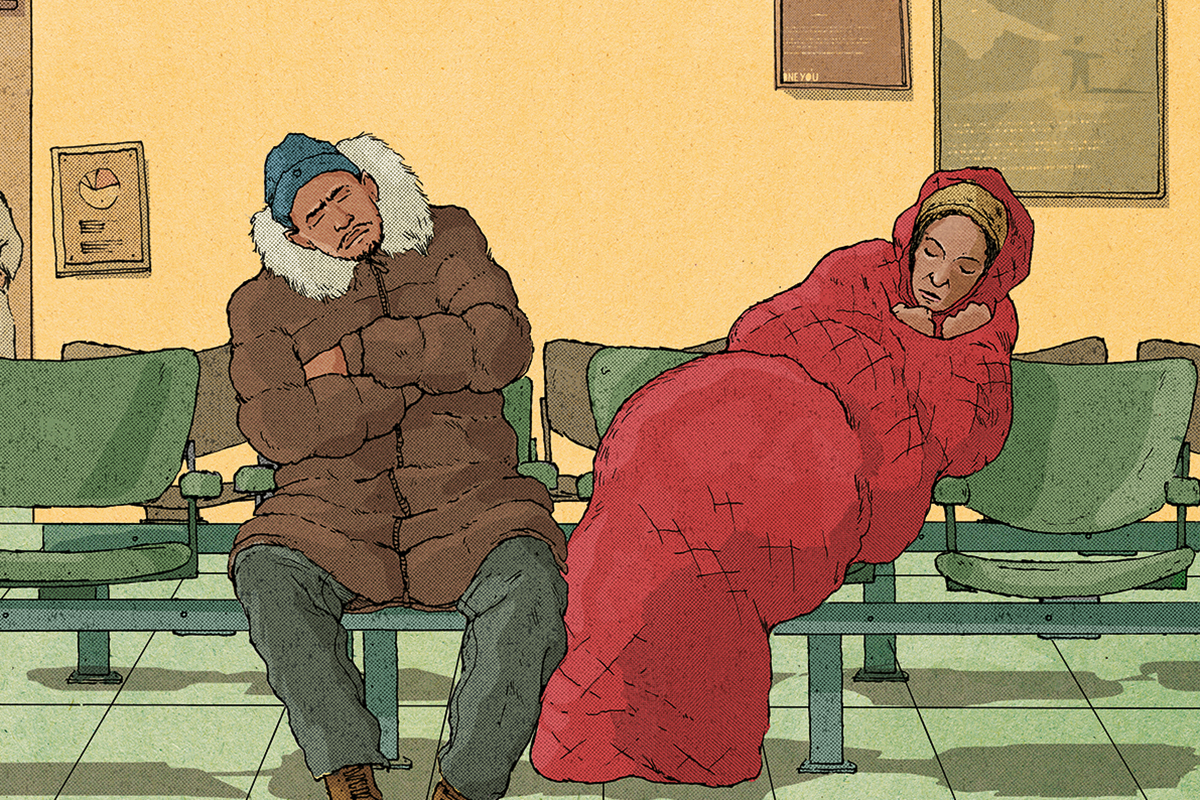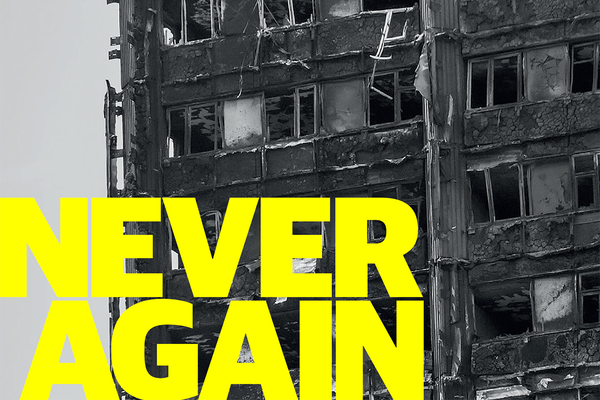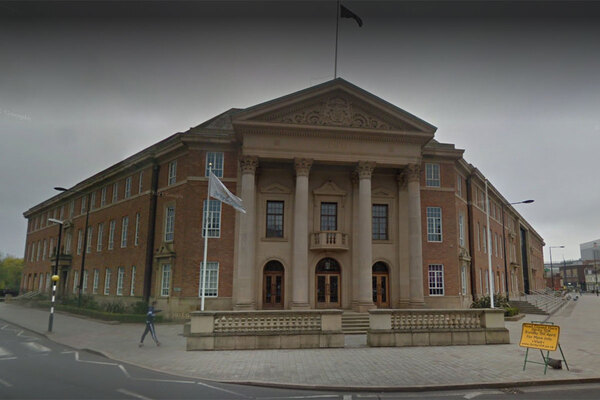You are viewing 1 of your 1 free articles
Morning Briefing: probe reveals number of rough sleeper deaths over winter
An investigation casts light on the number of rough sleeper and homeless deaths over winter, and analysis reportedly shows food bank use is higher in Universal Credit areas
In the news
The non-profit organisation The Bureau of Investigative Journalism has released figures showing that at least 78 homeless people died in the UK over winter, including rough sleepers on the streets and those in temporary accommodation.
The Guardian’s report notes that the figures are “likely to be a significant underestimate as no part of the UK government records homeless death statistics at a national level”.
Rent arrears, evictions and food bank use is higher in areas where Universal Credit has been rolled out, according to a report by Sky News. The report draws on figures from the National Housing Federation, Residential Landlords Association and data released today by The Trussell Trust showing food bank use is four times higher in Universal Credit areas. The HuffPost has a report on The Trussell Trust figures.
Financial news website Citywire has some commentary on the recent fall in the share price of Civitas Social Housing, a Real Estate Investment Trust (REIT).
Citywire reports that fund manager Hawskmoor Investment Management is backing Civitas for recovery and believes Civitas has been a victim of “misinformation”.
As we reported earlier this month, Civitas’ share price fell by 8% after the Regulator of Social Housing found governance failures at First Priority, a housing association which has deals with REITS.
Civitas social housing’s share price has recovered in recent weeks, increasing from a low of 95.8p to 104p, although this is still well down on its 113p high in early January.
Luke Murphy, associate director at thinktank, Institute for Public Policy Research (IPPR) has called for reforms to the land market in a piece for City Metric. You can read more from IPPR on Inside Housing this morning, as its researcher Darren Baxter explains why the thinktank has launched a call for evidence on tackling the rural housing crisis.
Adrian Dobson of The Royal Institute for British Architects has written a piece for the Architects’ Journal outlining concerns about the Hackitt Review, saying building regulations need to include firm regulation on fire safety and not guidance. The site requires you to register to read the article. Inside Housing last week also reported on RIBA’s concerns over the review here.
Law firm Pinsent Masons notes that new legislation that came into force on 6 April has changed the legal status of housing associations in Northern Ireland.
The Barking & Dagenham Post is reporting that residents were angry at what they saw was a lack of fire alarms during a fire in a tower block.
The Argus newspaper has a report of a fiery planning meeting – along with video of a resident being ejected - at which a 450-home development was granted planning approval near Brighton.
And finally, could co-living be the answer to tackling loneliness among younger people? The BBC has published a decent long read looking at this option here.
On social media
Paul Kershaw of trade union Unite calls for a halt to the use of controversial ‘desktop studies’ to assess the fire safety of materials:
Use of desktop studies to check cladding safety (rather than full test) has fallen since #GrenfellTower but continues & govt thinks will rise by 30% on current policies Why not halt desktop studies? t.co/8NoOdA8CLP #ukhousing
— Paul Kershaw (@1917paul)Use of desktop studies to check cladding safety (rather than full test) has fallen since #GrenfellTower but continues & govt thinks will rise by 30% on current policies Why not halt desktop studies? https://t.co/8NoOdA8CLP #ukhousing
— Paul Kershaw (@1917paul) April 24, 2018
What’s on
- The three-day TAI 2018 conference begins in Cardiff, Wales
What are desktop studies, and why are people concerned?
Building regulations say cladding systems which contain combustible insulation must be shown to meet specific standards based on “full scale test data”
A ‘desktop study’ is a means of making an assumption about whether or not a cladding system would meet these standards without actually testing it.
It involves using data from previous tests of the materials in different combinations to make assumptions about how it would perform in a test.
This is not specifically provided for in the current guide to building regulations, but the government believes they are loosely drafted to an extent which makes it permissible. It plans to redraft the guidance to include specific rules on the use of desktop studies for the first time.
The alternatives to a desktop study are full scale testing or not using combustible materials.
People are concerned about the process because it is based on assumption: at least one system cleared through a desktop study has failed a full scale test.
This is important for fire safety because mistakes may mean unsafe cladding systems being cleared for use on tall buildings.
The Paper Trail: The Failure of Building Regulations
Read our in-depth investigation into how building regulations have changed over time and how this may have contributed to the Grenfell Tower fire:
Never Again campaign
Inside Housing has launched a campaign to improve fire safety following the Grenfell Tower fire
Never Again: campaign asks
Inside Housing is calling for immediate action to implement the learning from the Lakanal House fire, and a commitment to act – without delay – on learning from the Grenfell Tower tragedy as it becomes available.
LANDLORDS
- Take immediate action to check cladding and external panels on tower blocks and take prompt, appropriate action to remedy any problems
- Update risk assessments using an appropriate, qualified expert.
- Commit to renewing assessments annually and after major repair or cladding work is carried out
- Review and update evacuation policies and ‘stay put’ advice in light of risk assessments, and communicate clearly to residents
GOVERNMENT
- Provide urgent advice on the installation and upkeep of external insulation
- Update and clarify building regulations immediately – with a commitment to update if additional learning emerges at a later date from the Grenfell inquiry
- Fund the retrofitting of sprinkler systems in all tower blocks across the UK (except where there are specific structural reasons not to do so)
We will submit evidence from our research to the Grenfell public inquiry.
The inquiry should look at why opportunities to implement learning that could have prevented the fire were missed, in order to ensure similar opportunities are acted on in the future.










